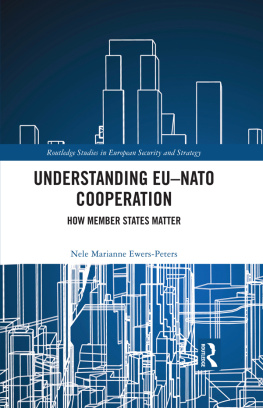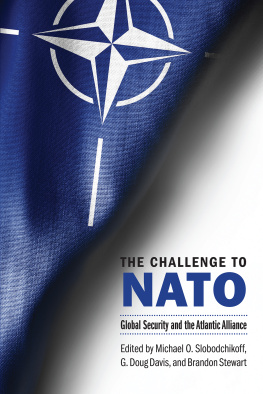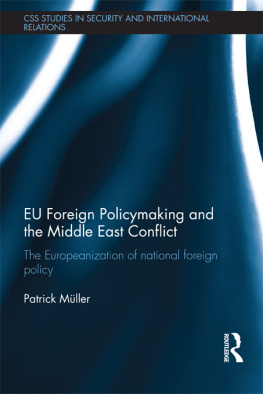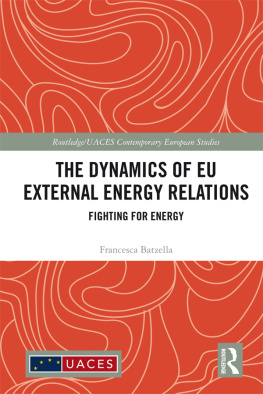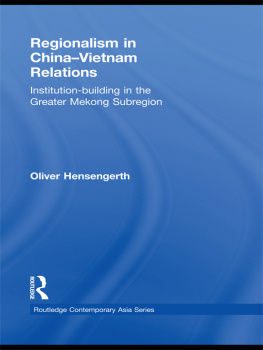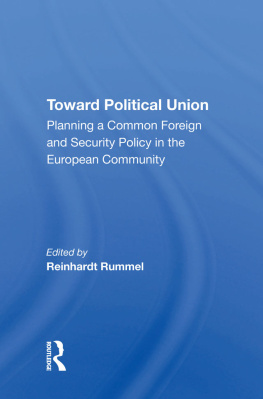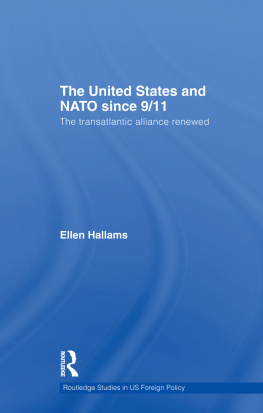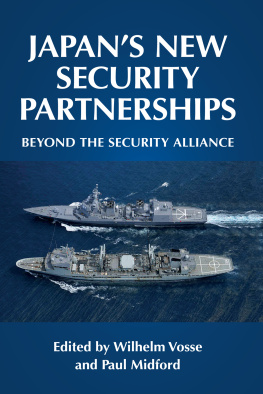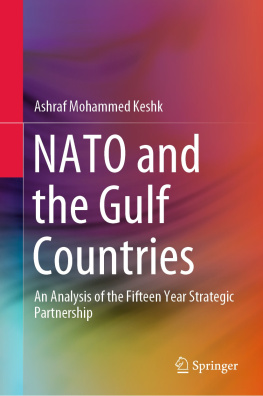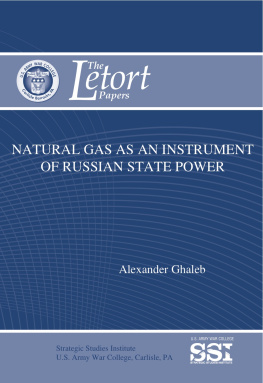The EU and NATO are the two big beasts of Europes international relations but the systematic study of their interorganisational relationship has been relatively neglected. This volume provides overdue insight into the puzzle as to why the EU-NATO interrelationship has been troubled. Ewers-Peters, by focusing on the role of states that share membership of both organisations, provides us with an empirically-rich and comprehensive analysis that significantly enhances our understanding of the EU-NATO dynamic.
Richard G. Whitman, University of Kent, UK
Understanding EU-NATO Cooperation: How Member States Matter offers the reader a systemic account of how member states shape EU-NATO cooperation. It enriches the EU-NATO literature, and the interorganisational cooperation literature more broadly, through its detailed account of an understudied question, namely, the ways in which member states can circumvent legal and institutional barriers to shape EU-NATO cooperation. In showing how member states contribute to the dysfunctionality of EU-NATO relations, Ewers-Peters book will be of considerable interest to scholars of European security.
Jocelyn Mawdsley, Newcastle University, UK
NATO and the EU have many common members and share similar goals, yet they often act as if they are on different planets. Understanding why this is so means knowing more about how member states shape each organizations priorities. Nele Marianne Ewers-Peters breaks new ground with her insights into the crucial role of individual member states in NATO-EU dynamics. A valuable book for practitioners and theorists alike.
Daniel S. Hamilton, Johns Hopkins University, US
Most analyses on the troubled relationship between NATO and the EU focus their attention on a few actors whose frozen positions arguably stand in the way of a constructive and cooperative future. In this well-crafted monograph, Nele Marianne Ewers-Peters adds depth and nuance to this well-trodden path by setting up a highly innovative framework for understanding all member states positions on the relationship. The book elegantly draws on interorganizational theory and identity perspectives to add a much needed conceptual and theoretical perspective for understanding not only the limitations, but also the opportunities in the NATO-EU relationship.
Trine Flockhart, University of Southern Denmark
European security has been shaped since the end of the Cold War by two international bodies: the EU and NATO. Despite their seemingly overlapping objectives, an efficient and effective relationship has yet to develop between the two organisations. The reason may seem obvious that NATO and the EU have overlapping but differentiated memberships. Obvious, it may be, but until now the implications of differentiation have not been fully explored. Nele Marianne Ewers-Peters takes a comprehensive look at the member countries of the EU and NATO how some states facilitate inter-organisational cooperation and how some block it. The analysis is sustained and forensic. We may bemoan the NATO-EU relationship, but we no longer have the excuse that we dont understand why it remains so dysfunctional.
Mark Webber, University of Birmingham, UK
Understanding EUNATO Cooperation
This book examines the development of cooperation between the EU and NATO, two key non-state actors in the European security architecture.
It also examines the relationship between the EU and NATO by focusing on the perspective of member states. Highlighting the relevance of member states role in shaping EUNATO relations, it conceptualises interorganisational cooperation and develops a typology of member states based on four types: advocates, blockers, balancers and neutrals. To apply this typology and analyse member states specific roles, the analysis considers their foreign and security policy orientations, bilateral relationships with other member states and contributions to both military operations and division of labour between the two organisations. The book also examines states use of political strategies such as forum-shopping, hostage-taking and brokering that influence the design, evolution and practicalities of cooperation between the EU and NATO.
This book will be of much interest to students of European Security and Defence Policy, international organisations and security studies in general.
Nele Marianne Ewers-Peters is a postdoctoral researcher at Johns Hopkins School of Advanced International Studies, USA, and a lecturer at Leuphana University Lneburg, Germany.
Understanding EUNATO Cooperation
How Member States Matter
Nele Marianne Ewers-Peters

First published 2022
by Routledge
2 Park Square, Milton Park, Abingdon, Oxon OX14 4RN
and by Routledge
605 Third Avenue, New York, NY 10158
Routledge is an imprint of the Taylor & Francis Group, an informa business
2022 Nele Marianne Ewers-Peters
The right of Nele Marianne Ewers-Peters to be identified as author of this work has been asserted in accordance with sections 77 and 78 of the Copyright, Designs and Patents Act 1988.
All rights reserved. No part of this book may be reprinted or reproduced or utilised in any form or by any electronic, mechanical, or other means, now known or hereafter invented, including photocopying and recording, or in any information storage or retrieval system, without permission in writing from the publishers.
Trademark notice: Product or corporate names may be trademarks or registered trademarks, and are used only for identification and explanation without intent to infringe.
British Library Cataloguing-in-Publication Data
A catalogue record for this book is available from the British Library
Library of Congress Cataloging-in-Publication Data
A catalog record has been requested for this book
ISBN: 978-0-367-77159-1 (hbk)
ISBN: 978-0-367-77161-4 (pbk)
ISBN: 978-1-003-17006-8 (ebk)
DOI: 10.4324/9781003170068
Typeset in Times New Roman
by Newgen Publishing UK
Contents
Figures
Tables
Acknowledgements
This book was written and finalised during my DAAD Postdoctoral Research Fellowship at Paul H. Nitze School of Advanced International Studies (SAIS) at Johns Hopkins University, Washington, DC, amidst the unusual time of the Covid-19 pandemic, the US elections in 2020 and the shifts in the European and international security order. The majority of this book was finalised during yet another lockdown in my hometown in Northern Germany and while under quarantine in Washington, DC. Revisiting a book about EUNATO cooperation during a time when direct interactions are absent, personal exchanges are restricted and where one is confined to limited personal space made me ponder about what international cooperation might look like in the future. What is more, the experience of virtual events and meetings, that are very likely to remain in place at least for the foreseeable future, actually made me wonder how this will contribute to strengthening exchanges and interactions on an international level. In fact, should online formats not facilitate cooperation between states and between organisations? The ease of calling and messaging someone as well as the greater inclusivity of people from across the transatlantic should be much easier than ever before. The Covid-19 pandemic has once again shown how crucial international cooperation is for the wellbeing of people as well as for peace and security. It is thus still surprising to see on a daily basis, how states counteract and pursue their national preferences over the common good. And this is also what drove this research from the very beginning: why certain states do not play by the book and what greater implications result from their behaviour. I am grateful and proud to present my research findings in this book and to make them available for everyone interested in learning more about EUNATO cooperation.

